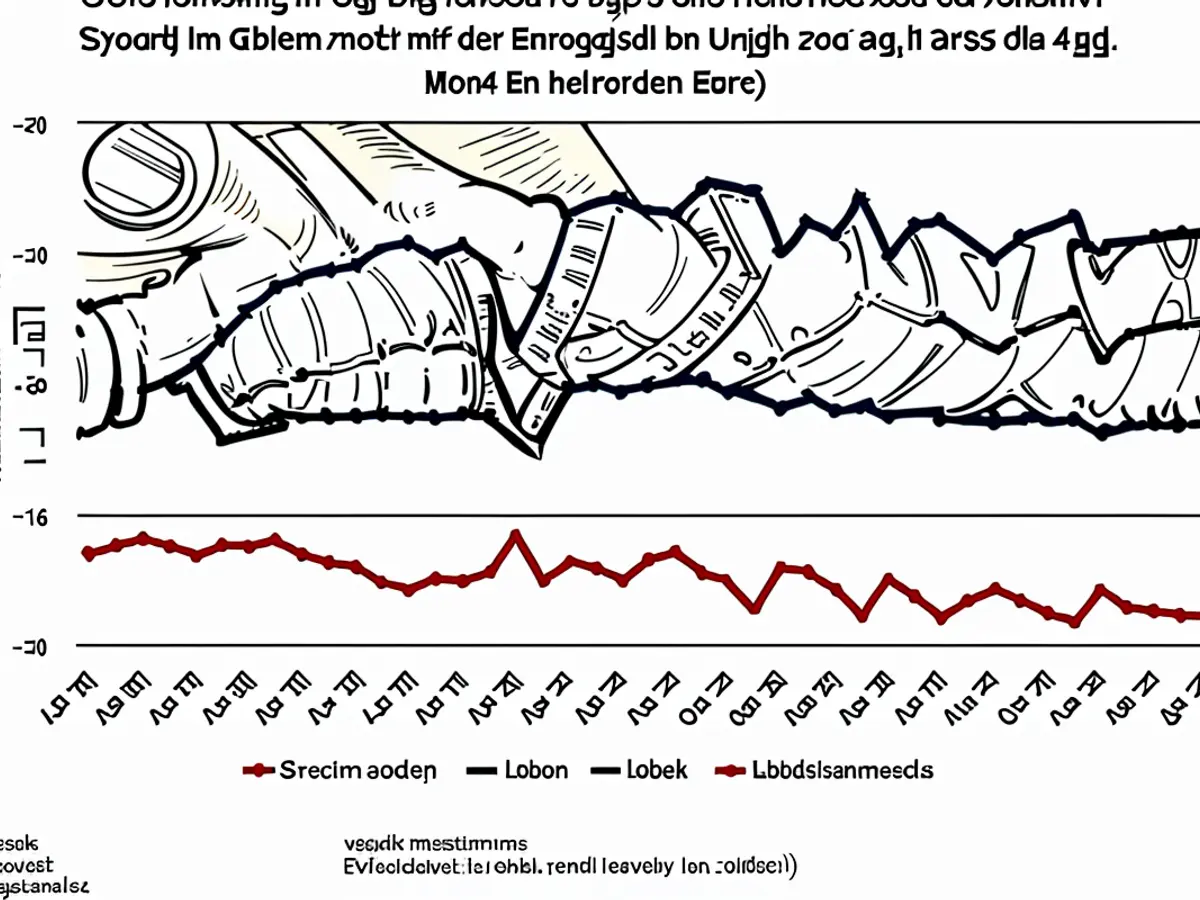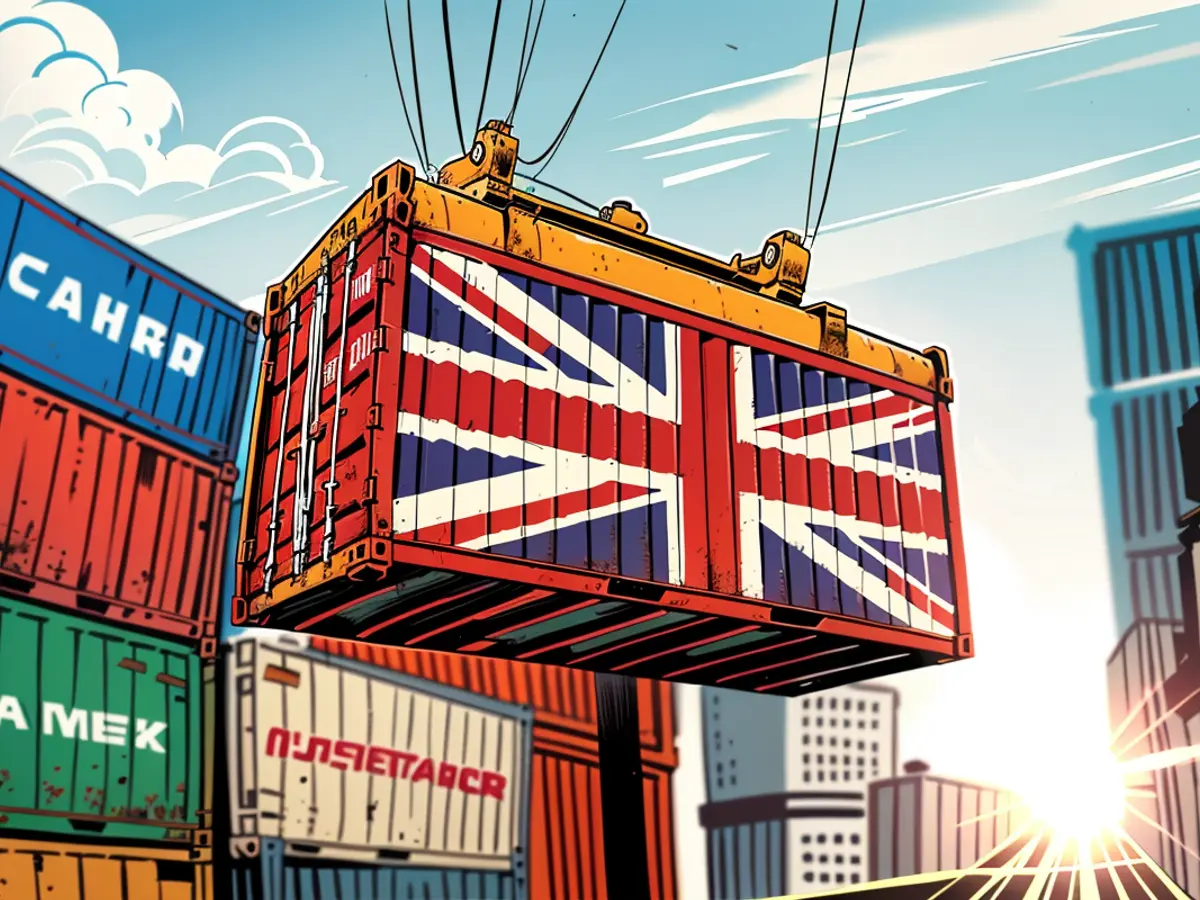Great Britain votes - How Labor wants to revive the economy and deal with Europe
Two weeks after the parliamentary elections, the presumably new British Prime Minister is expected to attend his first important European summit. If the colleagues from more than 40 countries gather at Blenheim Palace on July 18 for the European Political Community (EPC) summit, their host is likely to be Keir Starmer. His Labour Party is on the brink of a landslide victory. At the EPC summit, there will be the first European political determination of the new government.
After 14 years of conservative rule and the departure from the European Union, the question arises: Will a Labour government move closer to the continent again? Security-wise, cooperation has never been broken, even in the face of the Ukrainian war. However, for stronger economic dynamism, which Labour promises its voters, a new rapprochement through a closer European alliance seems plausible – the 2020 Brexit cost the economy between four and six percentage points of economic output.
However, a U-turn is not to be expected. During the campaign, the Brexit and its consequences played little role. Labour leader Starmer, son of a toolmaker and a nurse from a small town in Surrey, was, unlike his predecessor Jeremy Corbyn, a consistent opponent of Brexit. However, the divisive issue that had split the nation and the Labour Party for almost a decade was carefully avoided by all politicians. No one wanted to wake up sleeping dogs – and give the opposition an attack surface.
Instead, Labour made the economic and financial failure of the Tories a prominent campaign issue – as if the EU exit were not a central issue. Starmer, a trained lawyer and later something like a general prosecutor, campaigned with the slogan "Change": For Labour voters, he promised the way to more prosperity, assuring the British frustrated by rising living costs. He wanted to open a new chapter to free the country from its economic depression. "It's a voice for economic recovery," Starmer says. "Creating more prosperity is our top priority."
Since the erratic Conservative Liz Truss attempted to boost the economy with massive tax cuts without recognizable counterfinancing two years ago, causing a near-crash on the financial market, voter trust in the Tories has been severely damaged. Rishi Sunak, Sunak's successor, stands for a cautious fiscal policy and stability, but his promises do not reach the average Britons who have become an average of 10,000 pounds poorer per year during the conservative era. Labour leads in the polls with 20 percentage points. "Such a lead directly before the elections has not existed since 1997," says pollster John Curtice of the University of Strathclyde.
Starmer now asks for a mandate for economic reforms that will stimulate growth. According to his party friend Peter Mandelson, he will need more than a change of direction for this: from the unproductive government apparatus in London to the starving communes that were very selectively funded by the Tories. Fast-track planning and approval procedures are also needed to clear the investment backlog in public infrastructure and private construction projects.
Starmer is now asking for a mandate for economic reforms that will stimulate growth. According to his party friend Peter Mandelson, he will need more than a change of direction for this: from the unproductive government apparatus in London to the starving communes that were very selectively funded by the Tories. Fast-track planning and approval procedures are also needed to clear the investment backlog in public infrastructure and private construction projects.
fourteen years of Tory rule have left trains, roads, and bridges in run-down condition, and in the wake of the Coronavirus crisis, they have bequeathed a higher debt mountain than their European neighbours, as the economy has not fully recovered. So, Labour must look for alternatives rather than just more money.
Starmer's five missions or six initial steps, as presented in mid-June, remain sketchy according to the "Financial Times". The banners of the event in Manchester announced goals such as "shorter waiting times for doctor's appointments" or "economic stability". The way forward is not clear even with the A5 brochure, which contains 33 Starmer photos but little political programmatics, writes a bitter commentator.

A consistently sensitive issue: taxes. Labour has ruled out increasing income tax, value-added tax, or social security contributions. Instead, tax loopholes should be closed, private schools should be more heavily taxed, and real estate purchases by foreigners should be more heavily taxed. The corporate tax rate will be capped at 25% until the end of the legislative period, and different corporate taxes will be simplified.
Without additional revenue, Labour remains just an alternative for saving or taking on more debt. Starmer does aim for balanced budgets and a reduction of the debt mountain, but it seems he wants to loosen the fiscal straitjacket built into the multi-year financial plan: Government investments should no longer be counted.
Like the Conservatives, Labour is betting on "green growth" with targeted investment incentives in future industries. Labour promises to create 650,000 new jobs from this. Where Conservatives have halted wind farms, new nuclear power plants, and the promotion of energy efficiency, decisions should be reviewed. Labour aims to make Britain a superpower in renewable energies and a competitive export power for future technologies.
Labour announces a new state-owned company, "Great British Energy", which will "finally put an end to the overprofit tax payments of oil and gas companies with higher bills". To enable the green energy supplier to participate in investment costs, 8.3 billion pounds are reserved for him during the legislative period. Additionally, funds from a new National Wealth Fund (funded with 7.3 billion pounds) will flow into ports, hydrogen pipelines, carbon capture technologies, or industrial clusters "in all corners of Britain".
Some observers consider the program more radical than it appears on the surface. Labour leader Starmer describes himself as a Socialist, but a progressive one. His renewed party is called "pro Worker" and "pro Business". One aims for an active role in government to seek a strategic partnership with entrepreneurs, not just to serve markets but to shape them. Labour focuses sectorally on the financial industry, excellence research, specialized services, highly developed manufacturing, and creative industry sectors, including artificial intelligence and data centers – without neglecting traditional industries like cars, steel, and pharmaceuticals.
Will Labour take a step towards the EU?
For central economists, labour is unable to solve the country's greatest growth brake: consumption weakness. This is due in part to significantly increased consumer prices, which also stem from disruptions in supply chains – both during the Coronavirus crisis and as a result of Brexit. According to the British Office for Budget Responsibility, Brexit reduced trade by 15%.
The United Kingdom's trade with the EU Single Market over the past few years has not been a success story. The trade volume reached a peak of 32.8 billion Euros in March 2019, then hit a low of 14.5 billion Euros in April 2020, and recovered to 32 billion Euros by the end of 2022. However, imports from the EU remained below 30 billion Euros per month in 2023 and 2024. British exports to the EU also remained at a moderate level since 2016: with a low of 6.6 billion Euros in January 2021. Exports rebounded to 20 billion Euros in September 2022, but have since remained below 14 billion Euros per month – roughly the same level as in 2016.

Despite this, the United Kingdom remains a large and important trading partner of the EU. It accounts for ten percent of Europe's total trade turnover (2023). The largest trading partner is the USA (17%), followed by China (15%). Labour also wants to intensify trade, but not by joining the Single Market, a Customs Union, or the European Economic Area like Norway. The party under Starmer has ruled out these options as well as EU-guaranteed freedom of movement. The red line remains: politically, the UK wants to remain autonomous in issues such as immigration, the regulation of services, or trade agreements with third countries.
Instead, Labour is flirting with the idea of negotiating a sanitary and phytosanitary agreement with the EU on plant and animal products. This would "significantly reduce trade barriers and help reduce the costs and delays for beleaguered British farmers and consumers," explained a Labour spokesperson. The costs for border controls on EU food products are estimated by the Centre for European Reform (CER) to be 330 million pounds from the government and closer to 3 billion pounds from the industry. If the latter is correct, this would certainly be a strong driver of food inflation, which heavily burdens the wallets of the British people.
However, a restricted pro-European prime minister would first have to convince his EU partners to resume negotiations after the Brexit "Rosyth Raid." The EU would also demand a price for this – the rebuilding of relationships beyond security and defense cooperation, says Charles Grant, Director of the Centre for European Reform in London. "The Heads of State and Government of the EU will understand that he [Starmer] must fulfill some of their wishes if he wants anything from the EU," says Grant.
Brussels, for instance, would like an agreement on youth mobility, allowing young people in the EU and the United Kingdom to spend more time on each other's sides of the English Channel. And the EU desires a regulation for fish: Once the current agreement, granting EU fishermen access to British waters, expires in 2026, it must be renegotiated annually. Unless London accepts another long-term agreement.
The EU believes in negotiations and compromises, which a Starmer government must agree to if they want to improve relations between the EU and the United Kingdom, Grant states.
Thus, a new Labour premier can expect some goodwill. However, the government must first clarify what they aim to achieve. Experts doubt that economic improvements, such as a veterinary deal, would provide a noticeable boost. The benefits would be relatively minimal and insufficient to offset the continued impact of Brexit, according to the think tank "UK in a Changing Europe" – at most, it would smooth out the sharpest edges. The Norwegian model, on the other hand, would facilitate trade but also include free movement and contributions to the EU budget.
"The stronger their majority in the House, the greater the space for political courage," assesses Andrew Marr, editor of the "New Statesman." In his view, the nation has long changed its opinion about the "toxic" divorce agreement with the EU under Boris Johnson, and there is no better opportunity than Labour's first 18 months in office to correct the relationship with the gigantic market at the doorstep, Marr believes. And he reminds us that the Belgian politician Guy Verhofstadt (once in the EU negotiation team) proposed an association agreement. Starmer's current caution "is by no means the end of this story. That will soon become clear."
The anticipated Labour government under Keir Starmer, following their landslide victory over the conservative party, may reconsider their distance from Great Britain's European relations. Despite avoiding the Brexit issue during the campaign, Starmer's opposition to Brexit and commitment to economic recovery could potentially bring Great Britain closer to stronger European alliances for economic dynamism.
At the forthcoming European Political Community (EPC) summit, the international community will observe the new government's first significant European political determination. If a U-turn in Great Britain's EU policy occurs, it could improve relations with the EU partner countries, resuming negotiations that were halted following the "Rosyth Raid" Brexit tensions.









